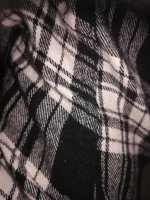I mean, not really
for me, but I'm rather biased on that specific front. I would personally value the consistency from saying, "We don't think scantily-clad women are appropriate subjects for D&D art now. And since we believe in treating men and women equally, that means we won't be featuring scantily-clad men, either." That would of course be disappointing because believe me, I quite like well-built scantily-clad men, but if one must choose, then choosing without showing favoritism is at least consistent.
So, sanitizing, to maximize sales.
You keep uzing that word. I disagree that it means what you think it means.
That's the whole point.
Right, because as you said, no way we get Conan anymore, we need to sanitize, for Sales.
I mean, I don't actually think we don't get Conan anymore. Consider the notorious "shirtless scene" in
Thor: the Dark World, where Thor sensuously washes up with a sponge at a basin, with the water glistening on his perfectly-chiseled abs. That's in a movie
published by Disney.
So...what does "Disneyfied" mean, again?
I commented earlier that I thought sanitizing was a rather loaded way of describing making the game more welcoming to people other than adolescent (either by age or maturity) white males. Pulling out the grossly misogynistic, racist, bigoted elements that filled the genre for the better part of the 20th century is sanitization? I guess?
If that's the definition of sanitization that we're going with here, then I, for one, 100% support it and I think that anyone who thinks that we should go back to the days when POC and women were unwelcome in the genre and the hobby should show themselves out the door. I would much rather have a sanitized game that included them in the hobby than an unsanitized hobby that panders to those that want to roll the clock back.
AFAIC, those people are not welcome in my hobby. Anyone who thinks that their fun should come at the expense of anyone else is not welcome. If the only way to enjoy the hobby is to use imagery or concepts that are grounded in bigotry, racism and misogyny, then, well, there's the door.
It's really that simple.
Agreed. "Sanitized" is being presented as an affront, a destruction of the
spirit of D&D, an
exclusion of the old fans. It's not. If people feel excluded by "our product now appeals to lots of people, not just people who were adolescents in the 80s," that says a lot more about
them than it says about
that product.
I mean, to ME, thats 100% what 'sanitization' would mean in this case. I'm baffled as to what else it would be.
Cleaning up, the things which wizards no longer thinks are palatable to the target demographic. - Sanitization.
Except that no one ever
stops there--not even you. It's not just "remove the bigotry and blatant sexism" when you field the term, is it? It's making the thing
tame and
toothless ("defanging" was the term used by others, IIRC), making it dull, removing the "adventure" (another thing explicitly referenced in this thread). "Sanitized" never
just means "hmm, maybe some of these things were never okay, and we should rethink them."
Yeah, I'm going to end the conversation here. It doesn't matter who is "technically correct" here on the topic of what sanitizing actually is. Conan really is not relevant to D&D anymore, and hasn't been for decades. And most people weren't complaining about no longer having near-nude adventurers chopping through hoards of enemies, they were complaining about the presence of space hamsters and festivals in a couple of D&D books.
Yeah, there's a hell of a lot of goalpost-moving and motte-and-bailey going on in this thread. Extremely strident claims of "Disneyfying" and "sanitizing," the removal of everything adventuresome and cool, only to retreat to "well I just mean taking out the racism and sexism" and "surely making it interesting to a wider audience is sanitizing!"
Which is fine, but its just the continuation of a general shift in tone, a sanitization.
Again: I disagree with your usage of the term "sanitization" here,
especially since you clearly use it as a pejorative, not simply a descriptor.


